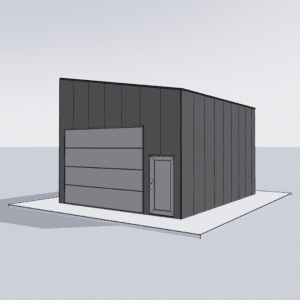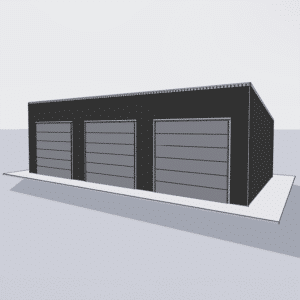When it comes to purchasing a new home, there are few things more critical than conducting a thorough home inspection. A house isn’t just a building; it’s a significant investment that can affect both your financial health and your quality of life. To ensure you’re making the right choice, a home inspection for buyers isn’t just recommended—it’s essential.
Why Home Inspections Matter for Buyers
Picture this: you’ve found your dream home. It looks perfect from the outside and feels like the one you’ve always imagined. However, beneath that appealing exterior, there could be unseen issues waiting to surprise you. A home inspection acts like a detective, uncovering these hidden problems, saving you potentially thousands of dollars and countless headaches in the future.
What Does a Home Inspection Entail?
You might be wondering, “What exactly does a home inspection involve?” Essentially, it’s a comprehensive examination of the physical structure and systems of a house, from the roof to the foundation. Some critical areas inspected include:
– **Roof and Attic:** Checking for leaks, proper insulation, and overall roof health.
– **Foundation and Basement:** Inspecting for cracks, moisture, and structural integrity.
– **Electrical System:** Ensuring wiring, circuits, and outlets are up to code and safe.
– **Plumbing:** Examining pipes for leaks and water pressure issues.
– **Heating and Cooling Systems:** Making sure HVAC systems are operational and efficient.
Benefits of a Home Inspection for Buyers
Acquiring the insight from a home inspection can be likened to holding a map that outlines all potential pitfalls and treasures of your prospective home. Let’s explore why:
– **Negotiating Power:** Armed with knowledge from your home inspection, you can negotiate repairs or a lower price, potentially reducing your financial burden.
– **Peace of Mind:** Knowing the ins and outs of your new abode empowers you to plan for repairs and improvements, reducing future surprises.
– **Informed Decision Making:** Ultimately, a home inspection provides the clarity needed to make a confident purchasing decision.
Imagine buying a home only to discover extensive mold hidden behind the pristine walls. The heartache and financial burden can be overwhelming. A home inspection helps circumvent these pitfalls, much like a lighthouse guiding a ship clear of hidden rocks.
Preparing for a Home Inspection
Before the inspection day arrives, there are a few steps you can take to prepare, ensuring the process goes smoothly and you gain the most from it.
Choose a Qualified Inspector
Selecting a qualified home inspector is crucial. Here’s what to consider:
– **Experience and Credentials:** Look for inspectors who are licensed and have a solid track record.
– **Reputation:** Consumer reviews and testimonials can provide insights into their reliability and thoroughness.
Consider checking multiple inspectors to find one who fits your needs perfectly, much like choosing the right teammate for a project. An adept inspector acts as your eyes and ears, identifying issues you might miss.
Participating in the Inspection
Being present during the home inspection allows you to ask questions and get explanations in real-time. It also provides you with a clearer understanding of the property’s condition, akin to learning a recipe from a chef rather than reading it.

During the Home Inspection
During the inspection, it’s essential to be observant and engaged. Your inspector will comb through the house, highlighting both minor and significant issues. This is the time to ask the burning questions that have been on your mind.
What to Look For
Certain aspects are critical for you to understand, such as:
– **Exterior and Siding:** Are there signs of damage on the siding or windows?
– **Roof:** Beyond just shingles, what’s the age and condition of gutters and flashing?
– **Interior Rooms:** Check out the floors, walls, ceilings, and doors for any damage or inefficiencies.
These details provide a holistic view of the home’s health, akin to checking vital signs during a health check-up.
Document and Discuss Findings
Ensure that all findings are documented. Ask your inspector for a detailed report and clarification on any concerning issues. Understanding these aspects is vital so you can effectively address potential problems.
After the Home Inspection: Next Steps
Once the inspection is complete, it’s time to make some critical decisions based on the findings.
Evaluating the Inspection Report
Your report will list all discovered issues, from leaky faucets to potential structural concerns. Evaluate these with a lens of practicality—are the issues manageable, or should they be a deal-breaker?
– **Minor Repairs:** Consider your willingness to tackle minor repairs. Often, these can be negotiated with the seller.
– **Major Issues:** Foundational problems or roof replacements require a sober assessment of your budget and resources.
If a significant problem like a faulty foundation is discovered, it might be time to reconsider your options—avoiding a potential money pit.
Renegotiate or Withdraw
Should significant issues arise, you might opt to renegotiate the purchase price or request repairs. In some cases, walking away may be the most financially sound decision. Remember, there are other homes available, perhaps even in the https://zillow.com Zillow listings.
Considering Other Construction Options
If the house of your dreams doesn’t seem attainable due to inspection results, consider alternative construction options. For instance, if you’re inspired by modern and durable structures, steel buildings can offer both flexibility and longevity. In Ontario, metal building systems Ontario are gaining popularity for residential purposes, providing an innovative and resilient option for homeowners.
You might even partner with residential construction experts like Your Building Team to customize a home that truly fits your needs and style.
Conclusion: No Stone Left Unturned
Conducting a thorough home inspection before buying is not just a formality; it’s a crucial step in safeguarding your future investment. A comprehensive understanding of your potential home’s condition can offer leverage in negotiations, peace of mind for future renovations, and clarity in decision-making.
Remember, a well-informed buyer is a powerful buyer. With the right resources and support, such as in-depth knowledge of dealing with construction delays, you’re prepared to make choices that will protect your interests in both the immediate and long term.
Whether your journey leads you to a newly constructed residence or a pre-existing gem, the investment made in a home inspection can illuminate the path toward a sound, satisfying home purchase decision.










